Antoine Beaupr : The Neo-Colonial Internet
I grew up with the Internet and its ethics and politics have always
been important in my life. But I have also been involved at other
levels, against police brutality, for Food, Not Bombs,
worker autonomy, software freedom, etc. For a long time,
that all seemed coherent.
But the more I look at the modern Internet -- and the
mega-corporations that control it -- and the less confidence I have in
my original political analysis of the liberating potential of
technology. I have come to believe that most of our technological
development is harmful to the large majority of the population of the
planet, and of course the rest of the biosphere. And now I feel this
is not a new problem.
This is because the Internet is a neo-colonial device, and has been
from the start. Let me explain.
What is Neo-Colonialism?
The term "neo-colonialism" was coined by Kwame Nkrumah,
first president of Ghana. In Neo-Colonialism, the Last Stage of
Imperialism (1965), he wrote:
What is Neo-Colonialism?
The term "neo-colonialism" was coined by Kwame Nkrumah,
first president of Ghana. In Neo-Colonialism, the Last Stage of
Imperialism (1965), he wrote:
In place of colonialism, as the main instrument of imperialism, we
have today neo-colonialism ... [which] like colonialism, is an
attempt to export the social conflicts of the capitalist
countries. ...
The result of neo-colonialism is that foreign capital is used for
the exploitation rather than for the development of the less
developed parts of the world. Investment, under neo-colonialism,
increases, rather than decreases, the gap between the rich and the
poor countries of the world.
So basically, if colonialism is Europeans bringing genocide, war,
and its religion to the Africa, Asia, and the Americas,
neo-colonialism is the Americans (note the "n") bringing capitalism to
the world.
Before we see how this applies to the Internet, we must therefore make
a detour into US history. This matters, because anyone would be
hard-pressed to decouple neo-colonialism from the empire under which
it evolves, and here we can only name the United States of America.
US Declaration of Independence
Let's start with the United States declaration of independence
(1776). Many Americans may roll their eyes at this, possibly because
that declaration is not actually part of the US constitution and
therefore may have questionable legal standing. Still, it was
obviously a driving philosophical force in the founding of the
nation. As its author, Thomas Jefferson, stated:
it was intended to be an expression of the American mind, and to
give to that expression the proper tone and spirit called for by the
occasion
In that aging document, we find the following pearl:
We hold these truths to be self-evident, that all men are created
equal, that they are endowed by their Creator with certain
unalienable Rights, that among these are Life, Liberty and the
pursuit of Happiness.
As a founding document, the Declaration still has an impact in the
sense that the above quote has been called an:
"immortal declaration", and "perhaps [the] single phrase" of the
American Revolutionary period with the greatest "continuing
importance." (Wikipedia)
Let's read that "immortal declaration" again: "all men are created
equal". "Men", in that context, is limited to a certain number of
people, namely "property-owning or tax-paying white males, or about
6% of the population". Back when this was written, women didn't
have the right to vote, and slavery was legal. Jefferson himself owned
hundreds of slaves.
The declaration was aimed at the King and was a list of
grievances. A concern of the colonists was that the King:
has excited domestic insurrections amongst us, and has endeavoured
to bring on the inhabitants of our frontiers, the merciless Indian
Savages whose known rule of warfare, is an undistinguished
destruction of all ages, sexes and conditions.
This is a clear mark of the frontier myth which paved the way for
the US to exterminate and colonize the territory some now call the
United States of America.
The declaration of independence is obviously a colonial document,
having being written by colonists. None of this is particularly
surprising, historically, but I figured it serves as a good reminder
of where the Internet is coming from, since it was born in the US.
A Declaration of the Independence of Cyberspace
Two hundred and twenty years later, in 1996, John Perry Barlow
wrote a declaration of independence of cyberspace. At this
point, (almost) everyone has a right to vote (including women),
slavery was abolished (although some argue it still exists in the
form of the prison system); the US has made tremendous
progress. Surely this text will have aged better than the previous
declaration it is obviously derived from. Let's see how it reads today
and how it maps to how the Internet is actually built now.
Borders of Independence
One of the key ideas that Barlow brings up is that "cyberspace does
not lie within your borders". In that sense, cyberspace is the final
frontier: having failed to colonize the moon, Americans turn
inwards, deeper into technology, but still in the frontier
ideology. And indeed, Barlow is one of the co-founder of the
Electronic Frontier Foundation (the beloved EFF), founded six
years prior.
But there are other problems with this idea. As Wikipedia quotes:
The declaration has been criticized for internal
inconsistencies.[9] The declaration's assertion that
'cyberspace' is a place removed from the physical world has also
been challenged by people who point to the fact that the Internet is
always linked to its underlying geography.[10]
And indeed, the Internet is definitely a physical object. First
controlled and severely restricted by "telcos" like AT&T, it was
somewhat "liberated" from that monopoly in 1982 when an anti-trust
lawsuit broke up the monopoly, a key historical event that,
one could argue, made the Internet possible.
(From there on, "backbone" providers could start competing and emerge,
and eventually coalesce into new monopolies: Google has a monopoly on
search and advertisement, Facebook on communications for a few
generations, Amazon on storage and computing, Microsoft on hardware,
etc. Even AT&T is now pretty much as consolidated as it was
before.)
The point is: all those companies have gigantic data centers and
intercontinental cables. And those are definitely prioritizing the
western world, the heart of the empire. Take for example Google's
latest 3,900 mile undersea cable: it does not connect Argentina to
South Africa or New Zealand, it connects the US to UK and
Spain. Hardly a revolutionary prospect.
Private Internet
But back to the Declaration:
Do not think that you can build it, as though it were a public
construction project. You cannot. It is an act of nature and it
grows itself through our collective actions.
In Barlow's mind, the "public" is bad, and private is good,
natural. Or, in other words, a "public construction project" is
unnatural. And indeed, the modern "nature" of development is private:
most of the Internet is now privately owned and operated.
I must admit that, as an anarchist, I loved that sentence when I read
it. I was rooting for "us", the underdogs, the revolutionaries. And,
in a way, I still do: I am on the board of Koumbit and work for a
non-profit that has pivoted towards censorship and surveillance
evasion. Yet I cannot help but think that, as a whole, we have failed
to establish that independence and put too much trust in private
companies. It is obvious in retrospect, but it was not, 30 years
ago.
Now, the infrastructure of the Internet has zero accountability to
traditional political entities supposedly representing the people, or
even its users. The situation is actually worse than when the US was
founded (e.g. "6% of the population can vote"), because the owners of the
tech giants are only a handful of people who can override any
decision. There's only one Amazon CEO, he's called Jeff Bezos, and he
has total control. (Update: Bezos actually ceded the CEO role to Andy
Jassy, AWS and Amazon music founder, while remaining executive
chairman. I would argue that, as the founder and the richest man
on earth, he still has strong control over Amazon.)
Social Contract
Here's another claim of the Declaration:
We are forming our own Social Contract.
I remember the early days, back when "netiquette" was a word, it
did feel we had some sort of a contract. Not written in standards of
course -- or barely (see RFC1855) -- but as a tacit
agreement. How wrong we were. One just needs to look at Facebook to
see how problematic that idea is on a global network.
Facebook is the quintessential "hacker" ideology put in practice. Mark
Zuckerberg explicitly refused to be "arbiter of truth" which
implicitly means he will let lies take over its platforms.
He also sees Facebook as place where everyone is equal, something
that echoes the Declaration:
We are creating a world that all may enter without privilege or
prejudice accorded by race, economic power, military force, or
station of birth.
(We note, in passing, the omission of gender in that list, also
mirroring the infamous "All men are created equal" claim of the US
declaration.)
As the Wall Street Journal's (WSJ) Facebook files later shown,
both of those "contracts" have serious limitations inside Facebook. There are
VIPs who systematically bypass moderation systems including
fascists and rapists. Drug cartels and human traffickers
thrive on the platform. Even when Zuckerberg himself tried to
tame the platform -- to get people vaccinated or to make it
healthier -- he failed: "vaxxer" conspiracies multiplied and
Facebook got angrier.
This is because the "social contract" behind Facebook and those large
companies is a lie: their concern is profit and that means
advertising, "engagement" with the platform, which causes increased
anxiety and depression in teens, for example.
Facebook's response to this is that they are working really hard on
moderation. But the truth is that even that system is severely
skewed. The WSJ showed that Facebook has translators for only 50
languages. It's a surprisingly hard to count human languages but
estimates range the number of distinct languages between 2500
and 7000. So while 50 languages seems big at first, it's actually a
tiny fraction of the human population using Facebook. Taking the first
50 of the Wikipedia list of languages by native speakers we omit
languages like Dutch (52), Greek (74), and Hungarian (78), and that's
just a few random nations picks from Europe.
As an example, Facebook has trouble moderating even a major language
like Arabic. It censored content from legitimate Arab news sources
when they mentioned the word al-Aqsa because Facebook associates
it with the al-Aqsa Martyrs' Brigades when they were talking
about the Al-Aqsa Mosque... This bias against Arabs also shows
how Facebook reproduces the American colonizer politics.
The WSJ also pointed out that Facebook spends only 13% of its
moderation efforts outside of the US, even if that represents 90% of
its users. Facebook spends three more times moderating on "brand
safety", which shows its priority is not the safety of its users, but
of the advertisers.
Military Internet
Sergey Brin and Larry Page are the Lewis and Clark of
our generation. Just like the latter were sent by Jefferson (the same)
to declare sovereignty over the entire US west coast, Google declared
sovereignty over all human knowledge, with its mission statement "to
organize the world's information and make it universally accessible
and useful". (It should be noted that Page somewhat questioned that
mission but only because it was not ambitious enough, Google
having "outgrown" it.)
The Lewis and Clark expedition, just like Google, had a scientific
pretext, because that is what you do to colonize a world,
presumably. Yet both men were military and had to receive scientific
training before they left. The Corps of Discovery was made up of
a few dozen enlisted men and a dozen civilians, including York an
African American slave owned by Clark and sold after the
expedition, with his final fate lost in history.
And just like Lewis and Clark, Google has a strong military
component. For example, Google Earth was not originally built at
Google but is the acquisition of a company called Keyhole which had
ties with the CIA. Those ties were brought inside Google during
the acquisition. Google's increasing investment inside the
military-industrial complex eventually led Google to workers
organizing a revolt although it is currently unclear to me how
much Google is involved in the military apparatus. Other companies,
obviously, do not have such reserve, with Microsoft, Amazon, and
plenty of others happily bidding on military contracts all the time.
Spreading the Internet
I am obviously not the first to identify colonial structures in the
Internet. In an article titled The Internet as an Extension of
Colonialism, Heather McDonald correctly identifies fundamental
problems with the "development" of new "markets" of Internet
"consumers", primarily arguing that it creates a digital divide
which creates a "lack of agency and individual freedom":
Many African people have gained access to these technologies but not
the freedom to develop content such as web pages or social media
platforms in their own way. Digital natives have much more power and
therefore use this to create their own space with their own norms,
shaping their online world according to their own outlook.
But the digital divide is certainly not the worst problem we have to
deal with on the Internet today. Going back to the Declaration, we
originally believed we were creating an entirely new world:
This governance will arise according to the conditions of our
world, not yours. Our world is different.
How I dearly wished that was true. Unfortunately, the Internet is
not that different from the offline world. Or, to be more accurate,
the values we have embedded in the Internet, particularly of free
speech absolutism, sexism, corporatism, and exploitation, are now
exploding outside of the Internet, into the "real" world.
The Internet was built with free software which, fundamentally, was
based on quasi-volunteer labour of an elite force of white men with
obviously too much time on their hands (and also: no children). The
mythical writing of GCC and Emacs by Richard Stallman is a good
example of this, but the entirety of the Internet now seems to be
running on random bits and pieces built by hit-and-run programmers
working on their copious free time. Whenever any of those fails,
it can compromise or bring down entire systems. (Heck, I wrote
this article on my day off...)
This model of what is fundamentally "cheap labour" is spreading out
from the Internet. Delivery workers are being exploited to the bone by
apps like Uber -- although it should be noted that workers organise
and fight back. Amazon workers are similarly exploited beyond
belief, forbidden to take breaks until they pee in bottles, with
ambulances nearby to carry out the bodies. During peak of the
pandemic, workers were being dangerously exposed to the virus in
warehouses. All this while Amazon is basically taking over the entire
economy.
The Declaration culminates with this prophecy:
We will spread ourselves across the Planet so that no one can arrest
our thoughts.
This prediction, which first felt revolutionary, is now chilling.
Colonial Internet
The Internet is, if not neo-colonial, plain colonial. The US colonies
had cotton fields and slaves, we have disposable cell phones and
Foxconn workers. Canada has its cultural genocide, Facebook
has his own genocides in Ethiopia, Myanmar, and mob violence
in India. Apple is at least implicitly accepting the Uyghur
genocide. And just like the slaves of the colony, those atrocities
are what makes the empire run.
The Declaration actually ends like this, a quote which I have in my
fortune cookies file:
We will create a civilization of the Mind in Cyberspace. May it be
more humane and fair than the world your governments have made
before.
That is still inspiring to me. But if we want to make "cyberspace"
more humane, we need to decolonize it. Work on cyberpeace instead of
cyberwar. Establish clear code of conduct, discuss ethics, and
question your own privileges, biases, and culture. For me the first
step in decolonizing my own mind is writing this article. Breaking
up tech monopolies might be an important step, but it won't be
enough: we have to do a culture shift as well, and that's the hard
part.
Appendix: an apology to Barlow
I kind of feel bad going through Barlow's declaration like this, point
by point. It is somewhat unfair, especially since Barlow passed away a
few years ago and cannot mount a response (even humbly assuming that
he might read this). But then again, he himself recognized he was
a bit too "optimistic" in 2009, saying: "we all get older and
smarter":
I'm an optimist. In order to be libertarian, you have to be an
optimist. You have to have a benign view of human nature, to believe
that human beings left to their own devices are basically good. But
I'm not so sure about human institutions, and I think the real point
of argument here is whether or not large corporations are human
institutions or some other entity we need to be thinking about
curtailing. Most libertarians are worried about government but not
worried about business. I think we need to be worrying about
business in exactly the same way we are worrying about government.
And, in a sense, it was a little naive to expect Barlow to not be a
colonist. Barlow is, among many things, a cattle rancher who grew up
on a colonial ranch in Wyoming. The ranch was founded in 1907 by his
great uncle, 17 years after the state joined the Union, and only a
generation or two after the Powder River War (1866-1868) and
Black Hills War (1876-1877) during which the US took over lands
occupied by Lakota, Cheyenne, Arapaho, and other native American
nations, in some of the last major First Nations Wars.
Appendix: further reading
There is another article that almost has the same title as this one:
Facebook and the New Colonialism. (Interestingly, the <title>
tag on the article is actually "Facebook the Colonial Empire" which I
also find appropriate.) The article is worth reading in full, but I
loved this quote so much that I couldn't resist reproducing it here:
Representations of colonialism have long been present in digital
landscapes. ( Even Super Mario Brothers, the video game designer
Steven Fox told me last year. You run through the landscape, stomp
on everything, and raise your flag at the end. ) But web-based
colonialism is not an abstraction. The online forces that shape a
new kind of imperialism go beyond Facebook.
It goes on:
Consider, for example, digitization projects that focus primarily on
English-language literature. If the web is meant to be humanity s new
Library of Alexandria, a living repository for all of humanity s
knowledge, this is a problem. So is the fact that the vast majority of
Wikipedia pages are about a relatively tiny square of the planet. For
instance, 14 percent of the world s population lives in Africa, but
less than 3 percent of the world s geotagged Wikipedia articles
originate there, according to a 2014 Oxford Internet Institute
report.
And they introduce another definition of Neo-colonialism, while
warning about abusing the word like I am sort of doing here:
I m loath to toss around words like colonialism but it s hard to
ignore the family resemblances and recognizable DNA, to wit, said
Deepika Bahri, an English professor at Emory University who focuses
on postcolonial studies. In an email, Bahri summed up those
similarities in list form:
- ride in like the savior
- bandy about words like equality, democracy, basic rights
- mask the long-term profit motive (see 2 above)
- justify the logic of partial dissemination as better than nothing
- partner with local elites and vested interests
- accuse the critics of ingratitude
In the end, she told me, if it isn t a duck, it shouldn t quack
like a duck.
Another good read is the classic Code and other laws of
cyberspace (1999, free PDF) which is also critical of
Barlow's Declaration. In "Code is law", Lawrence Lessig argues that:
computer code (or "West Coast Code", referring to Silicon Valley)
regulates conduct in much the same way that legal code (or "East
Coast Code", referring to Washington, D.C.) does (Wikipedia)
And now it feels like the west coast has won over the east coast, or
maybe it recolonized it. In any case, Internet now christens
emperors.
it was intended to be an expression of the American mind, and to give to that expression the proper tone and spirit called for by the occasionIn that aging document, we find the following pearl:
We hold these truths to be self-evident, that all men are created equal, that they are endowed by their Creator with certain unalienable Rights, that among these are Life, Liberty and the pursuit of Happiness.As a founding document, the Declaration still has an impact in the sense that the above quote has been called an:
"immortal declaration", and "perhaps [the] single phrase" of the American Revolutionary period with the greatest "continuing importance." (Wikipedia)Let's read that "immortal declaration" again: "all men are created equal". "Men", in that context, is limited to a certain number of people, namely "property-owning or tax-paying white males, or about 6% of the population". Back when this was written, women didn't have the right to vote, and slavery was legal. Jefferson himself owned hundreds of slaves. The declaration was aimed at the King and was a list of grievances. A concern of the colonists was that the King:
has excited domestic insurrections amongst us, and has endeavoured to bring on the inhabitants of our frontiers, the merciless Indian Savages whose known rule of warfare, is an undistinguished destruction of all ages, sexes and conditions.This is a clear mark of the frontier myth which paved the way for the US to exterminate and colonize the territory some now call the United States of America. The declaration of independence is obviously a colonial document, having being written by colonists. None of this is particularly surprising, historically, but I figured it serves as a good reminder of where the Internet is coming from, since it was born in the US.
A Declaration of the Independence of Cyberspace
Two hundred and twenty years later, in 1996, John Perry Barlow
wrote a declaration of independence of cyberspace. At this
point, (almost) everyone has a right to vote (including women),
slavery was abolished (although some argue it still exists in the
form of the prison system); the US has made tremendous
progress. Surely this text will have aged better than the previous
declaration it is obviously derived from. Let's see how it reads today
and how it maps to how the Internet is actually built now.
Borders of Independence
One of the key ideas that Barlow brings up is that "cyberspace does
not lie within your borders". In that sense, cyberspace is the final
frontier: having failed to colonize the moon, Americans turn
inwards, deeper into technology, but still in the frontier
ideology. And indeed, Barlow is one of the co-founder of the
Electronic Frontier Foundation (the beloved EFF), founded six
years prior.
But there are other problems with this idea. As Wikipedia quotes:
The declaration has been criticized for internal
inconsistencies.[9] The declaration's assertion that
'cyberspace' is a place removed from the physical world has also
been challenged by people who point to the fact that the Internet is
always linked to its underlying geography.[10]
And indeed, the Internet is definitely a physical object. First
controlled and severely restricted by "telcos" like AT&T, it was
somewhat "liberated" from that monopoly in 1982 when an anti-trust
lawsuit broke up the monopoly, a key historical event that,
one could argue, made the Internet possible.
(From there on, "backbone" providers could start competing and emerge,
and eventually coalesce into new monopolies: Google has a monopoly on
search and advertisement, Facebook on communications for a few
generations, Amazon on storage and computing, Microsoft on hardware,
etc. Even AT&T is now pretty much as consolidated as it was
before.)
The point is: all those companies have gigantic data centers and
intercontinental cables. And those are definitely prioritizing the
western world, the heart of the empire. Take for example Google's
latest 3,900 mile undersea cable: it does not connect Argentina to
South Africa or New Zealand, it connects the US to UK and
Spain. Hardly a revolutionary prospect.
Private Internet
But back to the Declaration:
Do not think that you can build it, as though it were a public
construction project. You cannot. It is an act of nature and it
grows itself through our collective actions.
In Barlow's mind, the "public" is bad, and private is good,
natural. Or, in other words, a "public construction project" is
unnatural. And indeed, the modern "nature" of development is private:
most of the Internet is now privately owned and operated.
I must admit that, as an anarchist, I loved that sentence when I read
it. I was rooting for "us", the underdogs, the revolutionaries. And,
in a way, I still do: I am on the board of Koumbit and work for a
non-profit that has pivoted towards censorship and surveillance
evasion. Yet I cannot help but think that, as a whole, we have failed
to establish that independence and put too much trust in private
companies. It is obvious in retrospect, but it was not, 30 years
ago.
Now, the infrastructure of the Internet has zero accountability to
traditional political entities supposedly representing the people, or
even its users. The situation is actually worse than when the US was
founded (e.g. "6% of the population can vote"), because the owners of the
tech giants are only a handful of people who can override any
decision. There's only one Amazon CEO, he's called Jeff Bezos, and he
has total control. (Update: Bezos actually ceded the CEO role to Andy
Jassy, AWS and Amazon music founder, while remaining executive
chairman. I would argue that, as the founder and the richest man
on earth, he still has strong control over Amazon.)
Social Contract
Here's another claim of the Declaration:
We are forming our own Social Contract.
I remember the early days, back when "netiquette" was a word, it
did feel we had some sort of a contract. Not written in standards of
course -- or barely (see RFC1855) -- but as a tacit
agreement. How wrong we were. One just needs to look at Facebook to
see how problematic that idea is on a global network.
Facebook is the quintessential "hacker" ideology put in practice. Mark
Zuckerberg explicitly refused to be "arbiter of truth" which
implicitly means he will let lies take over its platforms.
He also sees Facebook as place where everyone is equal, something
that echoes the Declaration:
We are creating a world that all may enter without privilege or
prejudice accorded by race, economic power, military force, or
station of birth.
(We note, in passing, the omission of gender in that list, also
mirroring the infamous "All men are created equal" claim of the US
declaration.)
As the Wall Street Journal's (WSJ) Facebook files later shown,
both of those "contracts" have serious limitations inside Facebook. There are
VIPs who systematically bypass moderation systems including
fascists and rapists. Drug cartels and human traffickers
thrive on the platform. Even when Zuckerberg himself tried to
tame the platform -- to get people vaccinated or to make it
healthier -- he failed: "vaxxer" conspiracies multiplied and
Facebook got angrier.
This is because the "social contract" behind Facebook and those large
companies is a lie: their concern is profit and that means
advertising, "engagement" with the platform, which causes increased
anxiety and depression in teens, for example.
Facebook's response to this is that they are working really hard on
moderation. But the truth is that even that system is severely
skewed. The WSJ showed that Facebook has translators for only 50
languages. It's a surprisingly hard to count human languages but
estimates range the number of distinct languages between 2500
and 7000. So while 50 languages seems big at first, it's actually a
tiny fraction of the human population using Facebook. Taking the first
50 of the Wikipedia list of languages by native speakers we omit
languages like Dutch (52), Greek (74), and Hungarian (78), and that's
just a few random nations picks from Europe.
As an example, Facebook has trouble moderating even a major language
like Arabic. It censored content from legitimate Arab news sources
when they mentioned the word al-Aqsa because Facebook associates
it with the al-Aqsa Martyrs' Brigades when they were talking
about the Al-Aqsa Mosque... This bias against Arabs also shows
how Facebook reproduces the American colonizer politics.
The WSJ also pointed out that Facebook spends only 13% of its
moderation efforts outside of the US, even if that represents 90% of
its users. Facebook spends three more times moderating on "brand
safety", which shows its priority is not the safety of its users, but
of the advertisers.
Military Internet
Sergey Brin and Larry Page are the Lewis and Clark of
our generation. Just like the latter were sent by Jefferson (the same)
to declare sovereignty over the entire US west coast, Google declared
sovereignty over all human knowledge, with its mission statement "to
organize the world's information and make it universally accessible
and useful". (It should be noted that Page somewhat questioned that
mission but only because it was not ambitious enough, Google
having "outgrown" it.)
The Lewis and Clark expedition, just like Google, had a scientific
pretext, because that is what you do to colonize a world,
presumably. Yet both men were military and had to receive scientific
training before they left. The Corps of Discovery was made up of
a few dozen enlisted men and a dozen civilians, including York an
African American slave owned by Clark and sold after the
expedition, with his final fate lost in history.
And just like Lewis and Clark, Google has a strong military
component. For example, Google Earth was not originally built at
Google but is the acquisition of a company called Keyhole which had
ties with the CIA. Those ties were brought inside Google during
the acquisition. Google's increasing investment inside the
military-industrial complex eventually led Google to workers
organizing a revolt although it is currently unclear to me how
much Google is involved in the military apparatus. Other companies,
obviously, do not have such reserve, with Microsoft, Amazon, and
plenty of others happily bidding on military contracts all the time.
Spreading the Internet
I am obviously not the first to identify colonial structures in the
Internet. In an article titled The Internet as an Extension of
Colonialism, Heather McDonald correctly identifies fundamental
problems with the "development" of new "markets" of Internet
"consumers", primarily arguing that it creates a digital divide
which creates a "lack of agency and individual freedom":
Many African people have gained access to these technologies but not
the freedom to develop content such as web pages or social media
platforms in their own way. Digital natives have much more power and
therefore use this to create their own space with their own norms,
shaping their online world according to their own outlook.
But the digital divide is certainly not the worst problem we have to
deal with on the Internet today. Going back to the Declaration, we
originally believed we were creating an entirely new world:
This governance will arise according to the conditions of our
world, not yours. Our world is different.
How I dearly wished that was true. Unfortunately, the Internet is
not that different from the offline world. Or, to be more accurate,
the values we have embedded in the Internet, particularly of free
speech absolutism, sexism, corporatism, and exploitation, are now
exploding outside of the Internet, into the "real" world.
The Internet was built with free software which, fundamentally, was
based on quasi-volunteer labour of an elite force of white men with
obviously too much time on their hands (and also: no children). The
mythical writing of GCC and Emacs by Richard Stallman is a good
example of this, but the entirety of the Internet now seems to be
running on random bits and pieces built by hit-and-run programmers
working on their copious free time. Whenever any of those fails,
it can compromise or bring down entire systems. (Heck, I wrote
this article on my day off...)
This model of what is fundamentally "cheap labour" is spreading out
from the Internet. Delivery workers are being exploited to the bone by
apps like Uber -- although it should be noted that workers organise
and fight back. Amazon workers are similarly exploited beyond
belief, forbidden to take breaks until they pee in bottles, with
ambulances nearby to carry out the bodies. During peak of the
pandemic, workers were being dangerously exposed to the virus in
warehouses. All this while Amazon is basically taking over the entire
economy.
The Declaration culminates with this prophecy:
We will spread ourselves across the Planet so that no one can arrest
our thoughts.
This prediction, which first felt revolutionary, is now chilling.
Colonial Internet
The Internet is, if not neo-colonial, plain colonial. The US colonies
had cotton fields and slaves, we have disposable cell phones and
Foxconn workers. Canada has its cultural genocide, Facebook
has his own genocides in Ethiopia, Myanmar, and mob violence
in India. Apple is at least implicitly accepting the Uyghur
genocide. And just like the slaves of the colony, those atrocities
are what makes the empire run.
The Declaration actually ends like this, a quote which I have in my
fortune cookies file:
We will create a civilization of the Mind in Cyberspace. May it be
more humane and fair than the world your governments have made
before.
That is still inspiring to me. But if we want to make "cyberspace"
more humane, we need to decolonize it. Work on cyberpeace instead of
cyberwar. Establish clear code of conduct, discuss ethics, and
question your own privileges, biases, and culture. For me the first
step in decolonizing my own mind is writing this article. Breaking
up tech monopolies might be an important step, but it won't be
enough: we have to do a culture shift as well, and that's the hard
part.
Appendix: an apology to Barlow
I kind of feel bad going through Barlow's declaration like this, point
by point. It is somewhat unfair, especially since Barlow passed away a
few years ago and cannot mount a response (even humbly assuming that
he might read this). But then again, he himself recognized he was
a bit too "optimistic" in 2009, saying: "we all get older and
smarter":
I'm an optimist. In order to be libertarian, you have to be an
optimist. You have to have a benign view of human nature, to believe
that human beings left to their own devices are basically good. But
I'm not so sure about human institutions, and I think the real point
of argument here is whether or not large corporations are human
institutions or some other entity we need to be thinking about
curtailing. Most libertarians are worried about government but not
worried about business. I think we need to be worrying about
business in exactly the same way we are worrying about government.
And, in a sense, it was a little naive to expect Barlow to not be a
colonist. Barlow is, among many things, a cattle rancher who grew up
on a colonial ranch in Wyoming. The ranch was founded in 1907 by his
great uncle, 17 years after the state joined the Union, and only a
generation or two after the Powder River War (1866-1868) and
Black Hills War (1876-1877) during which the US took over lands
occupied by Lakota, Cheyenne, Arapaho, and other native American
nations, in some of the last major First Nations Wars.
Appendix: further reading
There is another article that almost has the same title as this one:
Facebook and the New Colonialism. (Interestingly, the <title>
tag on the article is actually "Facebook the Colonial Empire" which I
also find appropriate.) The article is worth reading in full, but I
loved this quote so much that I couldn't resist reproducing it here:
Representations of colonialism have long been present in digital
landscapes. ( Even Super Mario Brothers, the video game designer
Steven Fox told me last year. You run through the landscape, stomp
on everything, and raise your flag at the end. ) But web-based
colonialism is not an abstraction. The online forces that shape a
new kind of imperialism go beyond Facebook.
It goes on:
Consider, for example, digitization projects that focus primarily on
English-language literature. If the web is meant to be humanity s new
Library of Alexandria, a living repository for all of humanity s
knowledge, this is a problem. So is the fact that the vast majority of
Wikipedia pages are about a relatively tiny square of the planet. For
instance, 14 percent of the world s population lives in Africa, but
less than 3 percent of the world s geotagged Wikipedia articles
originate there, according to a 2014 Oxford Internet Institute
report.
And they introduce another definition of Neo-colonialism, while
warning about abusing the word like I am sort of doing here:
I m loath to toss around words like colonialism but it s hard to
ignore the family resemblances and recognizable DNA, to wit, said
Deepika Bahri, an English professor at Emory University who focuses
on postcolonial studies. In an email, Bahri summed up those
similarities in list form:
- ride in like the savior
- bandy about words like equality, democracy, basic rights
- mask the long-term profit motive (see 2 above)
- justify the logic of partial dissemination as better than nothing
- partner with local elites and vested interests
- accuse the critics of ingratitude
In the end, she told me, if it isn t a duck, it shouldn t quack
like a duck.
Another good read is the classic Code and other laws of
cyberspace (1999, free PDF) which is also critical of
Barlow's Declaration. In "Code is law", Lawrence Lessig argues that:
computer code (or "West Coast Code", referring to Silicon Valley)
regulates conduct in much the same way that legal code (or "East
Coast Code", referring to Washington, D.C.) does (Wikipedia)
And now it feels like the west coast has won over the east coast, or
maybe it recolonized it. In any case, Internet now christens
emperors.
The declaration has been criticized for internal inconsistencies.[9] The declaration's assertion that 'cyberspace' is a place removed from the physical world has also been challenged by people who point to the fact that the Internet is always linked to its underlying geography.[10]And indeed, the Internet is definitely a physical object. First controlled and severely restricted by "telcos" like AT&T, it was somewhat "liberated" from that monopoly in 1982 when an anti-trust lawsuit broke up the monopoly, a key historical event that, one could argue, made the Internet possible. (From there on, "backbone" providers could start competing and emerge, and eventually coalesce into new monopolies: Google has a monopoly on search and advertisement, Facebook on communications for a few generations, Amazon on storage and computing, Microsoft on hardware, etc. Even AT&T is now pretty much as consolidated as it was before.) The point is: all those companies have gigantic data centers and intercontinental cables. And those are definitely prioritizing the western world, the heart of the empire. Take for example Google's latest 3,900 mile undersea cable: it does not connect Argentina to South Africa or New Zealand, it connects the US to UK and Spain. Hardly a revolutionary prospect.
Private Internet
But back to the Declaration:
Do not think that you can build it, as though it were a public
construction project. You cannot. It is an act of nature and it
grows itself through our collective actions.
In Barlow's mind, the "public" is bad, and private is good,
natural. Or, in other words, a "public construction project" is
unnatural. And indeed, the modern "nature" of development is private:
most of the Internet is now privately owned and operated.
I must admit that, as an anarchist, I loved that sentence when I read
it. I was rooting for "us", the underdogs, the revolutionaries. And,
in a way, I still do: I am on the board of Koumbit and work for a
non-profit that has pivoted towards censorship and surveillance
evasion. Yet I cannot help but think that, as a whole, we have failed
to establish that independence and put too much trust in private
companies. It is obvious in retrospect, but it was not, 30 years
ago.
Now, the infrastructure of the Internet has zero accountability to
traditional political entities supposedly representing the people, or
even its users. The situation is actually worse than when the US was
founded (e.g. "6% of the population can vote"), because the owners of the
tech giants are only a handful of people who can override any
decision. There's only one Amazon CEO, he's called Jeff Bezos, and he
has total control. (Update: Bezos actually ceded the CEO role to Andy
Jassy, AWS and Amazon music founder, while remaining executive
chairman. I would argue that, as the founder and the richest man
on earth, he still has strong control over Amazon.)
Social Contract
Here's another claim of the Declaration:
We are forming our own Social Contract.
I remember the early days, back when "netiquette" was a word, it
did feel we had some sort of a contract. Not written in standards of
course -- or barely (see RFC1855) -- but as a tacit
agreement. How wrong we were. One just needs to look at Facebook to
see how problematic that idea is on a global network.
Facebook is the quintessential "hacker" ideology put in practice. Mark
Zuckerberg explicitly refused to be "arbiter of truth" which
implicitly means he will let lies take over its platforms.
He also sees Facebook as place where everyone is equal, something
that echoes the Declaration:
We are creating a world that all may enter without privilege or
prejudice accorded by race, economic power, military force, or
station of birth.
(We note, in passing, the omission of gender in that list, also
mirroring the infamous "All men are created equal" claim of the US
declaration.)
As the Wall Street Journal's (WSJ) Facebook files later shown,
both of those "contracts" have serious limitations inside Facebook. There are
VIPs who systematically bypass moderation systems including
fascists and rapists. Drug cartels and human traffickers
thrive on the platform. Even when Zuckerberg himself tried to
tame the platform -- to get people vaccinated or to make it
healthier -- he failed: "vaxxer" conspiracies multiplied and
Facebook got angrier.
This is because the "social contract" behind Facebook and those large
companies is a lie: their concern is profit and that means
advertising, "engagement" with the platform, which causes increased
anxiety and depression in teens, for example.
Facebook's response to this is that they are working really hard on
moderation. But the truth is that even that system is severely
skewed. The WSJ showed that Facebook has translators for only 50
languages. It's a surprisingly hard to count human languages but
estimates range the number of distinct languages between 2500
and 7000. So while 50 languages seems big at first, it's actually a
tiny fraction of the human population using Facebook. Taking the first
50 of the Wikipedia list of languages by native speakers we omit
languages like Dutch (52), Greek (74), and Hungarian (78), and that's
just a few random nations picks from Europe.
As an example, Facebook has trouble moderating even a major language
like Arabic. It censored content from legitimate Arab news sources
when they mentioned the word al-Aqsa because Facebook associates
it with the al-Aqsa Martyrs' Brigades when they were talking
about the Al-Aqsa Mosque... This bias against Arabs also shows
how Facebook reproduces the American colonizer politics.
The WSJ also pointed out that Facebook spends only 13% of its
moderation efforts outside of the US, even if that represents 90% of
its users. Facebook spends three more times moderating on "brand
safety", which shows its priority is not the safety of its users, but
of the advertisers.
Military Internet
Sergey Brin and Larry Page are the Lewis and Clark of
our generation. Just like the latter were sent by Jefferson (the same)
to declare sovereignty over the entire US west coast, Google declared
sovereignty over all human knowledge, with its mission statement "to
organize the world's information and make it universally accessible
and useful". (It should be noted that Page somewhat questioned that
mission but only because it was not ambitious enough, Google
having "outgrown" it.)
The Lewis and Clark expedition, just like Google, had a scientific
pretext, because that is what you do to colonize a world,
presumably. Yet both men were military and had to receive scientific
training before they left. The Corps of Discovery was made up of
a few dozen enlisted men and a dozen civilians, including York an
African American slave owned by Clark and sold after the
expedition, with his final fate lost in history.
And just like Lewis and Clark, Google has a strong military
component. For example, Google Earth was not originally built at
Google but is the acquisition of a company called Keyhole which had
ties with the CIA. Those ties were brought inside Google during
the acquisition. Google's increasing investment inside the
military-industrial complex eventually led Google to workers
organizing a revolt although it is currently unclear to me how
much Google is involved in the military apparatus. Other companies,
obviously, do not have such reserve, with Microsoft, Amazon, and
plenty of others happily bidding on military contracts all the time.
Spreading the Internet
I am obviously not the first to identify colonial structures in the
Internet. In an article titled The Internet as an Extension of
Colonialism, Heather McDonald correctly identifies fundamental
problems with the "development" of new "markets" of Internet
"consumers", primarily arguing that it creates a digital divide
which creates a "lack of agency and individual freedom":
Many African people have gained access to these technologies but not
the freedom to develop content such as web pages or social media
platforms in their own way. Digital natives have much more power and
therefore use this to create their own space with their own norms,
shaping their online world according to their own outlook.
But the digital divide is certainly not the worst problem we have to
deal with on the Internet today. Going back to the Declaration, we
originally believed we were creating an entirely new world:
This governance will arise according to the conditions of our
world, not yours. Our world is different.
How I dearly wished that was true. Unfortunately, the Internet is
not that different from the offline world. Or, to be more accurate,
the values we have embedded in the Internet, particularly of free
speech absolutism, sexism, corporatism, and exploitation, are now
exploding outside of the Internet, into the "real" world.
The Internet was built with free software which, fundamentally, was
based on quasi-volunteer labour of an elite force of white men with
obviously too much time on their hands (and also: no children). The
mythical writing of GCC and Emacs by Richard Stallman is a good
example of this, but the entirety of the Internet now seems to be
running on random bits and pieces built by hit-and-run programmers
working on their copious free time. Whenever any of those fails,
it can compromise or bring down entire systems. (Heck, I wrote
this article on my day off...)
This model of what is fundamentally "cheap labour" is spreading out
from the Internet. Delivery workers are being exploited to the bone by
apps like Uber -- although it should be noted that workers organise
and fight back. Amazon workers are similarly exploited beyond
belief, forbidden to take breaks until they pee in bottles, with
ambulances nearby to carry out the bodies. During peak of the
pandemic, workers were being dangerously exposed to the virus in
warehouses. All this while Amazon is basically taking over the entire
economy.
The Declaration culminates with this prophecy:
We will spread ourselves across the Planet so that no one can arrest
our thoughts.
This prediction, which first felt revolutionary, is now chilling.
Colonial Internet
The Internet is, if not neo-colonial, plain colonial. The US colonies
had cotton fields and slaves, we have disposable cell phones and
Foxconn workers. Canada has its cultural genocide, Facebook
has his own genocides in Ethiopia, Myanmar, and mob violence
in India. Apple is at least implicitly accepting the Uyghur
genocide. And just like the slaves of the colony, those atrocities
are what makes the empire run.
The Declaration actually ends like this, a quote which I have in my
fortune cookies file:
We will create a civilization of the Mind in Cyberspace. May it be
more humane and fair than the world your governments have made
before.
That is still inspiring to me. But if we want to make "cyberspace"
more humane, we need to decolonize it. Work on cyberpeace instead of
cyberwar. Establish clear code of conduct, discuss ethics, and
question your own privileges, biases, and culture. For me the first
step in decolonizing my own mind is writing this article. Breaking
up tech monopolies might be an important step, but it won't be
enough: we have to do a culture shift as well, and that's the hard
part.
Appendix: an apology to Barlow
I kind of feel bad going through Barlow's declaration like this, point
by point. It is somewhat unfair, especially since Barlow passed away a
few years ago and cannot mount a response (even humbly assuming that
he might read this). But then again, he himself recognized he was
a bit too "optimistic" in 2009, saying: "we all get older and
smarter":
I'm an optimist. In order to be libertarian, you have to be an
optimist. You have to have a benign view of human nature, to believe
that human beings left to their own devices are basically good. But
I'm not so sure about human institutions, and I think the real point
of argument here is whether or not large corporations are human
institutions or some other entity we need to be thinking about
curtailing. Most libertarians are worried about government but not
worried about business. I think we need to be worrying about
business in exactly the same way we are worrying about government.
And, in a sense, it was a little naive to expect Barlow to not be a
colonist. Barlow is, among many things, a cattle rancher who grew up
on a colonial ranch in Wyoming. The ranch was founded in 1907 by his
great uncle, 17 years after the state joined the Union, and only a
generation or two after the Powder River War (1866-1868) and
Black Hills War (1876-1877) during which the US took over lands
occupied by Lakota, Cheyenne, Arapaho, and other native American
nations, in some of the last major First Nations Wars.
Appendix: further reading
There is another article that almost has the same title as this one:
Facebook and the New Colonialism. (Interestingly, the <title>
tag on the article is actually "Facebook the Colonial Empire" which I
also find appropriate.) The article is worth reading in full, but I
loved this quote so much that I couldn't resist reproducing it here:
Representations of colonialism have long been present in digital
landscapes. ( Even Super Mario Brothers, the video game designer
Steven Fox told me last year. You run through the landscape, stomp
on everything, and raise your flag at the end. ) But web-based
colonialism is not an abstraction. The online forces that shape a
new kind of imperialism go beyond Facebook.
It goes on:
Consider, for example, digitization projects that focus primarily on
English-language literature. If the web is meant to be humanity s new
Library of Alexandria, a living repository for all of humanity s
knowledge, this is a problem. So is the fact that the vast majority of
Wikipedia pages are about a relatively tiny square of the planet. For
instance, 14 percent of the world s population lives in Africa, but
less than 3 percent of the world s geotagged Wikipedia articles
originate there, according to a 2014 Oxford Internet Institute
report.
And they introduce another definition of Neo-colonialism, while
warning about abusing the word like I am sort of doing here:
I m loath to toss around words like colonialism but it s hard to
ignore the family resemblances and recognizable DNA, to wit, said
Deepika Bahri, an English professor at Emory University who focuses
on postcolonial studies. In an email, Bahri summed up those
similarities in list form:
- ride in like the savior
- bandy about words like equality, democracy, basic rights
- mask the long-term profit motive (see 2 above)
- justify the logic of partial dissemination as better than nothing
- partner with local elites and vested interests
- accuse the critics of ingratitude
In the end, she told me, if it isn t a duck, it shouldn t quack
like a duck.
Another good read is the classic Code and other laws of
cyberspace (1999, free PDF) which is also critical of
Barlow's Declaration. In "Code is law", Lawrence Lessig argues that:
computer code (or "West Coast Code", referring to Silicon Valley)
regulates conduct in much the same way that legal code (or "East
Coast Code", referring to Washington, D.C.) does (Wikipedia)
And now it feels like the west coast has won over the east coast, or
maybe it recolonized it. In any case, Internet now christens
emperors.
We are forming our own Social Contract.I remember the early days, back when "netiquette" was a word, it did feel we had some sort of a contract. Not written in standards of course -- or barely (see RFC1855) -- but as a tacit agreement. How wrong we were. One just needs to look at Facebook to see how problematic that idea is on a global network. Facebook is the quintessential "hacker" ideology put in practice. Mark Zuckerberg explicitly refused to be "arbiter of truth" which implicitly means he will let lies take over its platforms. He also sees Facebook as place where everyone is equal, something that echoes the Declaration:
We are creating a world that all may enter without privilege or prejudice accorded by race, economic power, military force, or station of birth.(We note, in passing, the omission of gender in that list, also mirroring the infamous "All men are created equal" claim of the US declaration.) As the Wall Street Journal's (WSJ) Facebook files later shown, both of those "contracts" have serious limitations inside Facebook. There are VIPs who systematically bypass moderation systems including fascists and rapists. Drug cartels and human traffickers thrive on the platform. Even when Zuckerberg himself tried to tame the platform -- to get people vaccinated or to make it healthier -- he failed: "vaxxer" conspiracies multiplied and Facebook got angrier. This is because the "social contract" behind Facebook and those large companies is a lie: their concern is profit and that means advertising, "engagement" with the platform, which causes increased anxiety and depression in teens, for example. Facebook's response to this is that they are working really hard on moderation. But the truth is that even that system is severely skewed. The WSJ showed that Facebook has translators for only 50 languages. It's a surprisingly hard to count human languages but estimates range the number of distinct languages between 2500 and 7000. So while 50 languages seems big at first, it's actually a tiny fraction of the human population using Facebook. Taking the first 50 of the Wikipedia list of languages by native speakers we omit languages like Dutch (52), Greek (74), and Hungarian (78), and that's just a few random nations picks from Europe. As an example, Facebook has trouble moderating even a major language like Arabic. It censored content from legitimate Arab news sources when they mentioned the word al-Aqsa because Facebook associates it with the al-Aqsa Martyrs' Brigades when they were talking about the Al-Aqsa Mosque... This bias against Arabs also shows how Facebook reproduces the American colonizer politics. The WSJ also pointed out that Facebook spends only 13% of its moderation efforts outside of the US, even if that represents 90% of its users. Facebook spends three more times moderating on "brand safety", which shows its priority is not the safety of its users, but of the advertisers.
Military Internet
Sergey Brin and Larry Page are the Lewis and Clark of
our generation. Just like the latter were sent by Jefferson (the same)
to declare sovereignty over the entire US west coast, Google declared
sovereignty over all human knowledge, with its mission statement "to
organize the world's information and make it universally accessible
and useful". (It should be noted that Page somewhat questioned that
mission but only because it was not ambitious enough, Google
having "outgrown" it.)
The Lewis and Clark expedition, just like Google, had a scientific
pretext, because that is what you do to colonize a world,
presumably. Yet both men were military and had to receive scientific
training before they left. The Corps of Discovery was made up of
a few dozen enlisted men and a dozen civilians, including York an
African American slave owned by Clark and sold after the
expedition, with his final fate lost in history.
And just like Lewis and Clark, Google has a strong military
component. For example, Google Earth was not originally built at
Google but is the acquisition of a company called Keyhole which had
ties with the CIA. Those ties were brought inside Google during
the acquisition. Google's increasing investment inside the
military-industrial complex eventually led Google to workers
organizing a revolt although it is currently unclear to me how
much Google is involved in the military apparatus. Other companies,
obviously, do not have such reserve, with Microsoft, Amazon, and
plenty of others happily bidding on military contracts all the time.
Spreading the Internet
I am obviously not the first to identify colonial structures in the
Internet. In an article titled The Internet as an Extension of
Colonialism, Heather McDonald correctly identifies fundamental
problems with the "development" of new "markets" of Internet
"consumers", primarily arguing that it creates a digital divide
which creates a "lack of agency and individual freedom":
Many African people have gained access to these technologies but not
the freedom to develop content such as web pages or social media
platforms in their own way. Digital natives have much more power and
therefore use this to create their own space with their own norms,
shaping their online world according to their own outlook.
But the digital divide is certainly not the worst problem we have to
deal with on the Internet today. Going back to the Declaration, we
originally believed we were creating an entirely new world:
This governance will arise according to the conditions of our
world, not yours. Our world is different.
How I dearly wished that was true. Unfortunately, the Internet is
not that different from the offline world. Or, to be more accurate,
the values we have embedded in the Internet, particularly of free
speech absolutism, sexism, corporatism, and exploitation, are now
exploding outside of the Internet, into the "real" world.
The Internet was built with free software which, fundamentally, was
based on quasi-volunteer labour of an elite force of white men with
obviously too much time on their hands (and also: no children). The
mythical writing of GCC and Emacs by Richard Stallman is a good
example of this, but the entirety of the Internet now seems to be
running on random bits and pieces built by hit-and-run programmers
working on their copious free time. Whenever any of those fails,
it can compromise or bring down entire systems. (Heck, I wrote
this article on my day off...)
This model of what is fundamentally "cheap labour" is spreading out
from the Internet. Delivery workers are being exploited to the bone by
apps like Uber -- although it should be noted that workers organise
and fight back. Amazon workers are similarly exploited beyond
belief, forbidden to take breaks until they pee in bottles, with
ambulances nearby to carry out the bodies. During peak of the
pandemic, workers were being dangerously exposed to the virus in
warehouses. All this while Amazon is basically taking over the entire
economy.
The Declaration culminates with this prophecy:
We will spread ourselves across the Planet so that no one can arrest
our thoughts.
This prediction, which first felt revolutionary, is now chilling.
Colonial Internet
The Internet is, if not neo-colonial, plain colonial. The US colonies
had cotton fields and slaves, we have disposable cell phones and
Foxconn workers. Canada has its cultural genocide, Facebook
has his own genocides in Ethiopia, Myanmar, and mob violence
in India. Apple is at least implicitly accepting the Uyghur
genocide. And just like the slaves of the colony, those atrocities
are what makes the empire run.
The Declaration actually ends like this, a quote which I have in my
fortune cookies file:
We will create a civilization of the Mind in Cyberspace. May it be
more humane and fair than the world your governments have made
before.
That is still inspiring to me. But if we want to make "cyberspace"
more humane, we need to decolonize it. Work on cyberpeace instead of
cyberwar. Establish clear code of conduct, discuss ethics, and
question your own privileges, biases, and culture. For me the first
step in decolonizing my own mind is writing this article. Breaking
up tech monopolies might be an important step, but it won't be
enough: we have to do a culture shift as well, and that's the hard
part.
Appendix: an apology to Barlow
I kind of feel bad going through Barlow's declaration like this, point
by point. It is somewhat unfair, especially since Barlow passed away a
few years ago and cannot mount a response (even humbly assuming that
he might read this). But then again, he himself recognized he was
a bit too "optimistic" in 2009, saying: "we all get older and
smarter":
I'm an optimist. In order to be libertarian, you have to be an
optimist. You have to have a benign view of human nature, to believe
that human beings left to their own devices are basically good. But
I'm not so sure about human institutions, and I think the real point
of argument here is whether or not large corporations are human
institutions or some other entity we need to be thinking about
curtailing. Most libertarians are worried about government but not
worried about business. I think we need to be worrying about
business in exactly the same way we are worrying about government.
And, in a sense, it was a little naive to expect Barlow to not be a
colonist. Barlow is, among many things, a cattle rancher who grew up
on a colonial ranch in Wyoming. The ranch was founded in 1907 by his
great uncle, 17 years after the state joined the Union, and only a
generation or two after the Powder River War (1866-1868) and
Black Hills War (1876-1877) during which the US took over lands
occupied by Lakota, Cheyenne, Arapaho, and other native American
nations, in some of the last major First Nations Wars.
Appendix: further reading
There is another article that almost has the same title as this one:
Facebook and the New Colonialism. (Interestingly, the <title>
tag on the article is actually "Facebook the Colonial Empire" which I
also find appropriate.) The article is worth reading in full, but I
loved this quote so much that I couldn't resist reproducing it here:
Representations of colonialism have long been present in digital
landscapes. ( Even Super Mario Brothers, the video game designer
Steven Fox told me last year. You run through the landscape, stomp
on everything, and raise your flag at the end. ) But web-based
colonialism is not an abstraction. The online forces that shape a
new kind of imperialism go beyond Facebook.
It goes on:
Consider, for example, digitization projects that focus primarily on
English-language literature. If the web is meant to be humanity s new
Library of Alexandria, a living repository for all of humanity s
knowledge, this is a problem. So is the fact that the vast majority of
Wikipedia pages are about a relatively tiny square of the planet. For
instance, 14 percent of the world s population lives in Africa, but
less than 3 percent of the world s geotagged Wikipedia articles
originate there, according to a 2014 Oxford Internet Institute
report.
And they introduce another definition of Neo-colonialism, while
warning about abusing the word like I am sort of doing here:
I m loath to toss around words like colonialism but it s hard to
ignore the family resemblances and recognizable DNA, to wit, said
Deepika Bahri, an English professor at Emory University who focuses
on postcolonial studies. In an email, Bahri summed up those
similarities in list form:
- ride in like the savior
- bandy about words like equality, democracy, basic rights
- mask the long-term profit motive (see 2 above)
- justify the logic of partial dissemination as better than nothing
- partner with local elites and vested interests
- accuse the critics of ingratitude
In the end, she told me, if it isn t a duck, it shouldn t quack
like a duck.
Another good read is the classic Code and other laws of
cyberspace (1999, free PDF) which is also critical of
Barlow's Declaration. In "Code is law", Lawrence Lessig argues that:
computer code (or "West Coast Code", referring to Silicon Valley)
regulates conduct in much the same way that legal code (or "East
Coast Code", referring to Washington, D.C.) does (Wikipedia)
And now it feels like the west coast has won over the east coast, or
maybe it recolonized it. In any case, Internet now christens
emperors.
Many African people have gained access to these technologies but not the freedom to develop content such as web pages or social media platforms in their own way. Digital natives have much more power and therefore use this to create their own space with their own norms, shaping their online world according to their own outlook.But the digital divide is certainly not the worst problem we have to deal with on the Internet today. Going back to the Declaration, we originally believed we were creating an entirely new world:
This governance will arise according to the conditions of our world, not yours. Our world is different.How I dearly wished that was true. Unfortunately, the Internet is not that different from the offline world. Or, to be more accurate, the values we have embedded in the Internet, particularly of free speech absolutism, sexism, corporatism, and exploitation, are now exploding outside of the Internet, into the "real" world. The Internet was built with free software which, fundamentally, was based on quasi-volunteer labour of an elite force of white men with obviously too much time on their hands (and also: no children). The mythical writing of GCC and Emacs by Richard Stallman is a good example of this, but the entirety of the Internet now seems to be running on random bits and pieces built by hit-and-run programmers working on their copious free time. Whenever any of those fails, it can compromise or bring down entire systems. (Heck, I wrote this article on my day off...) This model of what is fundamentally "cheap labour" is spreading out from the Internet. Delivery workers are being exploited to the bone by apps like Uber -- although it should be noted that workers organise and fight back. Amazon workers are similarly exploited beyond belief, forbidden to take breaks until they pee in bottles, with ambulances nearby to carry out the bodies. During peak of the pandemic, workers were being dangerously exposed to the virus in warehouses. All this while Amazon is basically taking over the entire economy. The Declaration culminates with this prophecy:
We will spread ourselves across the Planet so that no one can arrest our thoughts.This prediction, which first felt revolutionary, is now chilling.
Colonial Internet
The Internet is, if not neo-colonial, plain colonial. The US colonies
had cotton fields and slaves, we have disposable cell phones and
Foxconn workers. Canada has its cultural genocide, Facebook
has his own genocides in Ethiopia, Myanmar, and mob violence
in India. Apple is at least implicitly accepting the Uyghur
genocide. And just like the slaves of the colony, those atrocities
are what makes the empire run.
The Declaration actually ends like this, a quote which I have in my
fortune cookies file:
We will create a civilization of the Mind in Cyberspace. May it be
more humane and fair than the world your governments have made
before.
That is still inspiring to me. But if we want to make "cyberspace"
more humane, we need to decolonize it. Work on cyberpeace instead of
cyberwar. Establish clear code of conduct, discuss ethics, and
question your own privileges, biases, and culture. For me the first
step in decolonizing my own mind is writing this article. Breaking
up tech monopolies might be an important step, but it won't be
enough: we have to do a culture shift as well, and that's the hard
part.
Appendix: an apology to Barlow
I kind of feel bad going through Barlow's declaration like this, point
by point. It is somewhat unfair, especially since Barlow passed away a
few years ago and cannot mount a response (even humbly assuming that
he might read this). But then again, he himself recognized he was
a bit too "optimistic" in 2009, saying: "we all get older and
smarter":
I'm an optimist. In order to be libertarian, you have to be an
optimist. You have to have a benign view of human nature, to believe
that human beings left to their own devices are basically good. But
I'm not so sure about human institutions, and I think the real point
of argument here is whether or not large corporations are human
institutions or some other entity we need to be thinking about
curtailing. Most libertarians are worried about government but not
worried about business. I think we need to be worrying about
business in exactly the same way we are worrying about government.
And, in a sense, it was a little naive to expect Barlow to not be a
colonist. Barlow is, among many things, a cattle rancher who grew up
on a colonial ranch in Wyoming. The ranch was founded in 1907 by his
great uncle, 17 years after the state joined the Union, and only a
generation or two after the Powder River War (1866-1868) and
Black Hills War (1876-1877) during which the US took over lands
occupied by Lakota, Cheyenne, Arapaho, and other native American
nations, in some of the last major First Nations Wars.
Appendix: further reading
There is another article that almost has the same title as this one:
Facebook and the New Colonialism. (Interestingly, the <title>
tag on the article is actually "Facebook the Colonial Empire" which I
also find appropriate.) The article is worth reading in full, but I
loved this quote so much that I couldn't resist reproducing it here:
Representations of colonialism have long been present in digital
landscapes. ( Even Super Mario Brothers, the video game designer
Steven Fox told me last year. You run through the landscape, stomp
on everything, and raise your flag at the end. ) But web-based
colonialism is not an abstraction. The online forces that shape a
new kind of imperialism go beyond Facebook.
It goes on:
Consider, for example, digitization projects that focus primarily on
English-language literature. If the web is meant to be humanity s new
Library of Alexandria, a living repository for all of humanity s
knowledge, this is a problem. So is the fact that the vast majority of
Wikipedia pages are about a relatively tiny square of the planet. For
instance, 14 percent of the world s population lives in Africa, but
less than 3 percent of the world s geotagged Wikipedia articles
originate there, according to a 2014 Oxford Internet Institute
report.
And they introduce another definition of Neo-colonialism, while
warning about abusing the word like I am sort of doing here:
I m loath to toss around words like colonialism but it s hard to
ignore the family resemblances and recognizable DNA, to wit, said
Deepika Bahri, an English professor at Emory University who focuses
on postcolonial studies. In an email, Bahri summed up those
similarities in list form:
- ride in like the savior
- bandy about words like equality, democracy, basic rights
- mask the long-term profit motive (see 2 above)
- justify the logic of partial dissemination as better than nothing
- partner with local elites and vested interests
- accuse the critics of ingratitude
In the end, she told me, if it isn t a duck, it shouldn t quack
like a duck.
Another good read is the classic Code and other laws of
cyberspace (1999, free PDF) which is also critical of
Barlow's Declaration. In "Code is law", Lawrence Lessig argues that:
computer code (or "West Coast Code", referring to Silicon Valley)
regulates conduct in much the same way that legal code (or "East
Coast Code", referring to Washington, D.C.) does (Wikipedia)
And now it feels like the west coast has won over the east coast, or
maybe it recolonized it. In any case, Internet now christens
emperors.
I'm an optimist. In order to be libertarian, you have to be an optimist. You have to have a benign view of human nature, to believe that human beings left to their own devices are basically good. But I'm not so sure about human institutions, and I think the real point of argument here is whether or not large corporations are human institutions or some other entity we need to be thinking about curtailing. Most libertarians are worried about government but not worried about business. I think we need to be worrying about business in exactly the same way we are worrying about government.And, in a sense, it was a little naive to expect Barlow to not be a colonist. Barlow is, among many things, a cattle rancher who grew up on a colonial ranch in Wyoming. The ranch was founded in 1907 by his great uncle, 17 years after the state joined the Union, and only a generation or two after the Powder River War (1866-1868) and Black Hills War (1876-1877) during which the US took over lands occupied by Lakota, Cheyenne, Arapaho, and other native American nations, in some of the last major First Nations Wars.
Appendix: further reading
There is another article that almost has the same title as this one:
Facebook and the New Colonialism. (Interestingly, the <title>
tag on the article is actually "Facebook the Colonial Empire" which I
also find appropriate.) The article is worth reading in full, but I
loved this quote so much that I couldn't resist reproducing it here:
Representations of colonialism have long been present in digital
landscapes. ( Even Super Mario Brothers, the video game designer
Steven Fox told me last year. You run through the landscape, stomp
on everything, and raise your flag at the end. ) But web-based
colonialism is not an abstraction. The online forces that shape a
new kind of imperialism go beyond Facebook.
It goes on:
Consider, for example, digitization projects that focus primarily on
English-language literature. If the web is meant to be humanity s new
Library of Alexandria, a living repository for all of humanity s
knowledge, this is a problem. So is the fact that the vast majority of
Wikipedia pages are about a relatively tiny square of the planet. For
instance, 14 percent of the world s population lives in Africa, but
less than 3 percent of the world s geotagged Wikipedia articles
originate there, according to a 2014 Oxford Internet Institute
report.
And they introduce another definition of Neo-colonialism, while
warning about abusing the word like I am sort of doing here:
I m loath to toss around words like colonialism but it s hard to
ignore the family resemblances and recognizable DNA, to wit, said
Deepika Bahri, an English professor at Emory University who focuses
on postcolonial studies. In an email, Bahri summed up those
similarities in list form:
- ride in like the savior
- bandy about words like equality, democracy, basic rights
- mask the long-term profit motive (see 2 above)
- justify the logic of partial dissemination as better than nothing
- partner with local elites and vested interests
- accuse the critics of ingratitude
In the end, she told me, if it isn t a duck, it shouldn t quack
like a duck.
Another good read is the classic Code and other laws of
cyberspace (1999, free PDF) which is also critical of
Barlow's Declaration. In "Code is law", Lawrence Lessig argues that:
computer code (or "West Coast Code", referring to Silicon Valley)
regulates conduct in much the same way that legal code (or "East
Coast Code", referring to Washington, D.C.) does (Wikipedia)
And now it feels like the west coast has won over the east coast, or
maybe it recolonized it. In any case, Internet now christens
emperors.
- ride in like the savior
- bandy about words like equality, democracy, basic rights
- mask the long-term profit motive (see 2 above)
- justify the logic of partial dissemination as better than nothing
- partner with local elites and vested interests
- accuse the critics of ingratitude
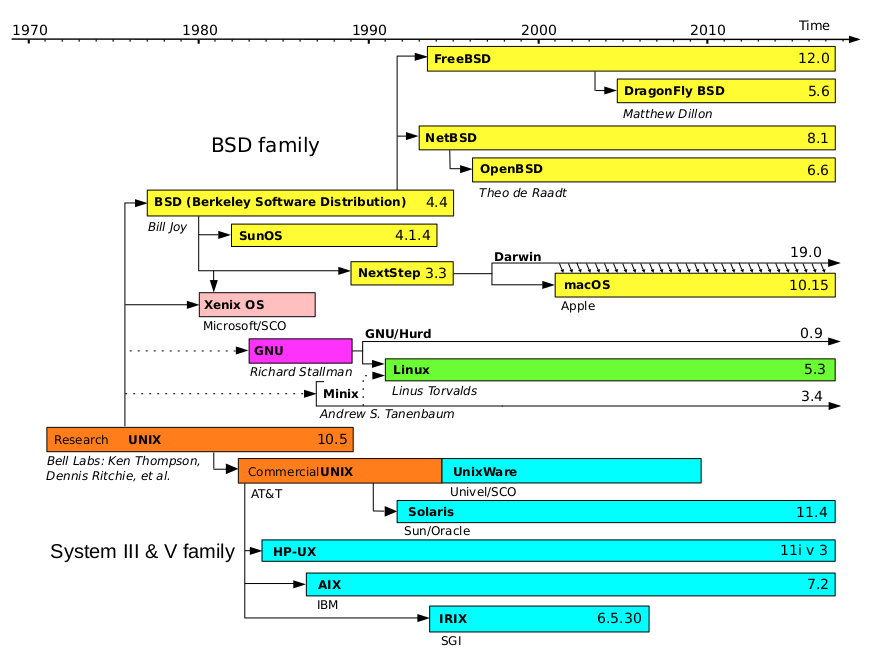
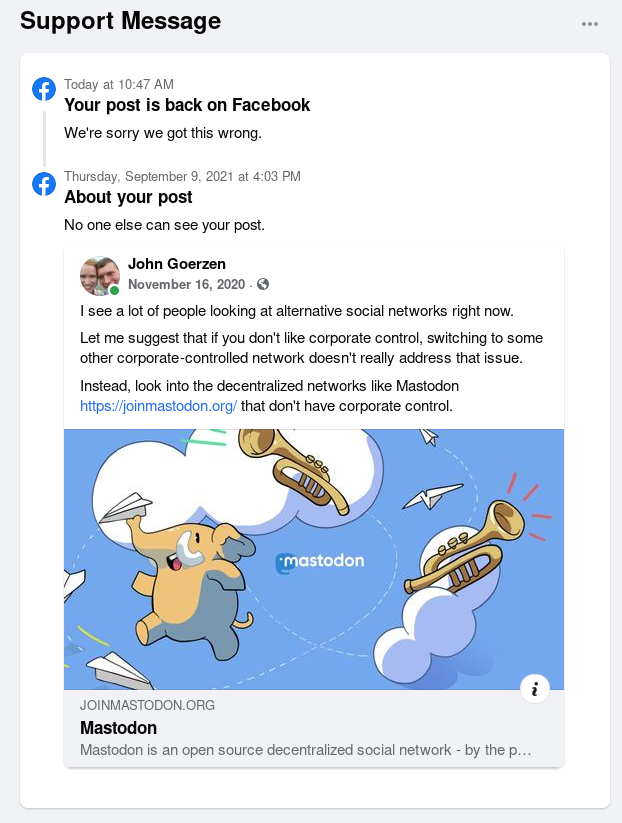 We also don t know if this reversal was human or algorithmic, but that still is beside the point.
The point is, Facebook intentionally chooses to surface and promote those things that drive engagement, regardless of quality.
Clearly many have wondered if tens of thousands of people have died unnecessary deaths over COVID as a result. One whistleblower says
We also don t know if this reversal was human or algorithmic, but that still is beside the point.
The point is, Facebook intentionally chooses to surface and promote those things that drive engagement, regardless of quality.
Clearly many have wondered if tens of thousands of people have died unnecessary deaths over COVID as a result. One whistleblower says 
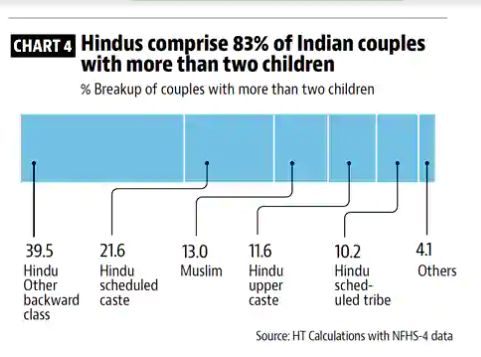 Hindus comprise 83% of Indian couples with more than two child children
Hindus comprise 83% of Indian couples with more than two child children If one wants to, one can read a bit more about the Uttar Pradesh Population bill
If one wants to, one can read a bit more about the Uttar Pradesh Population bill 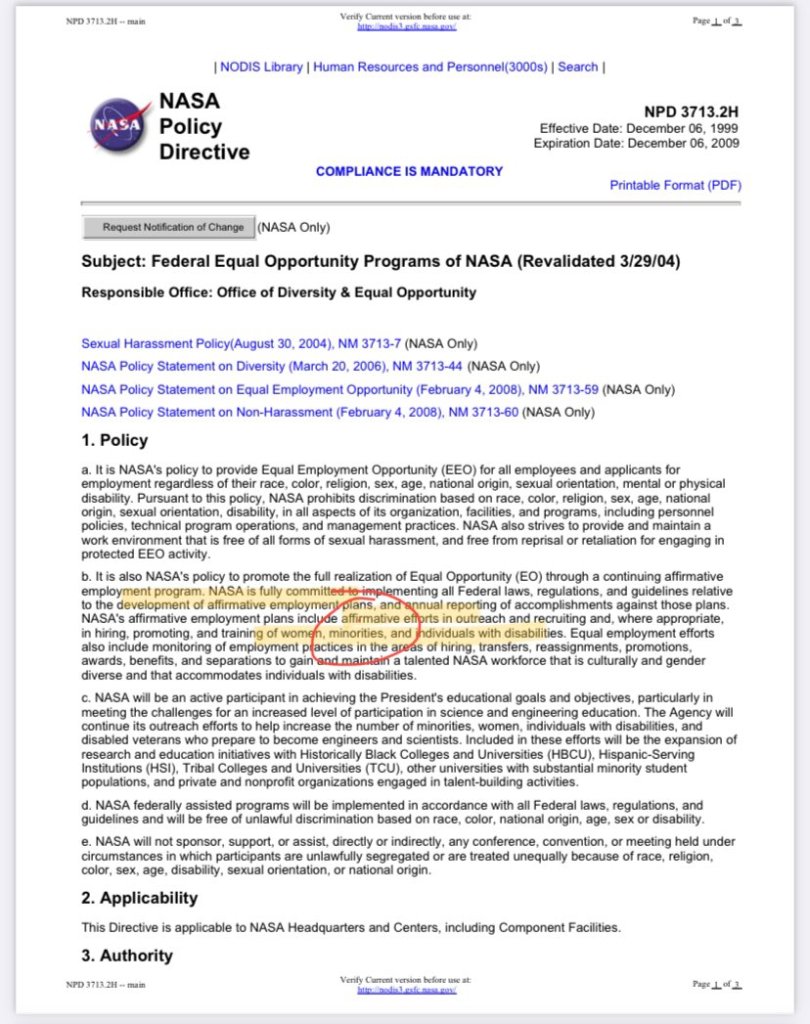




 This blog post is about my observations of some of the plants in my home garden.
While still a n00b on the subject, these notes are my observations and experiences over days, weeks and months. Thankfully, with the capability to take frequent pictures, it has been easy to do an assessment and generate a report of some of these amazing behaviors of plants, in an easy timeline order; all thanks to the EXIF data embedded.
This has very helpfully allowed me to record my, otherwise minor observations, into great detail; and make some sense out of it by correlating the data over time.
It is an emotional experience. You see, plants are amazing. When I sow a sapling, water it, feed it, watch it grow, prune it, medicate it, and what not; I build up affection towards it.
Though, at the same time, to me it is a strict relationship, not too attached; as in it doesn t hurt to uproot a plant if there is a good reason. But still, I find some sort of association to it.
With plants around, it feels I have a lot of lives around me. All prospering, communicating, sharing. And communicate they do. What is needed is just the right language to observe and absorb their signals and decipher what they are trying to say.
This blog post is about my observations of some of the plants in my home garden.
While still a n00b on the subject, these notes are my observations and experiences over days, weeks and months. Thankfully, with the capability to take frequent pictures, it has been easy to do an assessment and generate a report of some of these amazing behaviors of plants, in an easy timeline order; all thanks to the EXIF data embedded.
This has very helpfully allowed me to record my, otherwise minor observations, into great detail; and make some sense out of it by correlating the data over time.
It is an emotional experience. You see, plants are amazing. When I sow a sapling, water it, feed it, watch it grow, prune it, medicate it, and what not; I build up affection towards it.
Though, at the same time, to me it is a strict relationship, not too attached; as in it doesn t hurt to uproot a plant if there is a good reason. But still, I find some sort of association to it.
With plants around, it feels I have a lot of lives around me. All prospering, communicating, sharing. And communicate they do. What is needed is just the right language to observe and absorb their signals and decipher what they are trying to say.


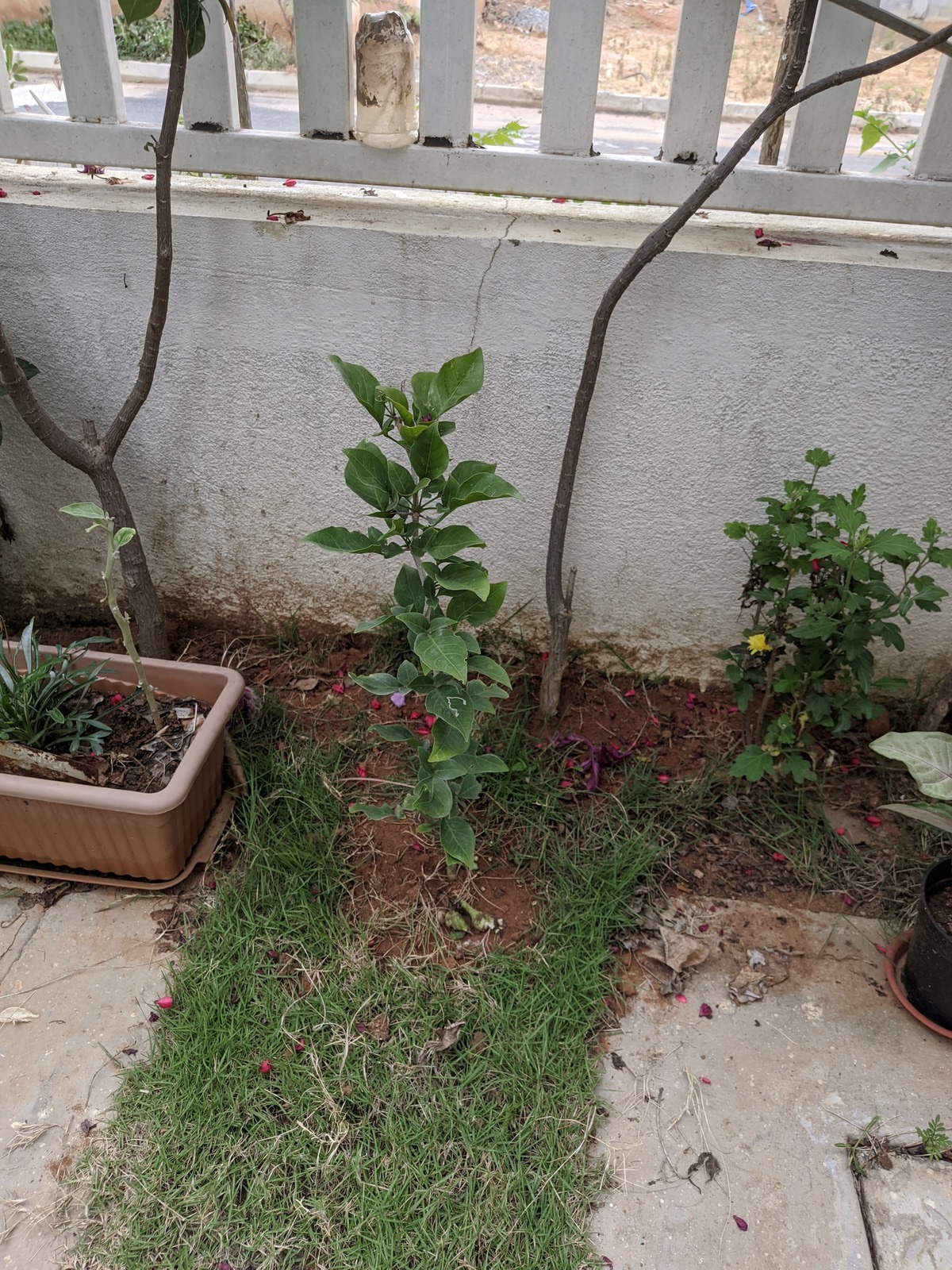
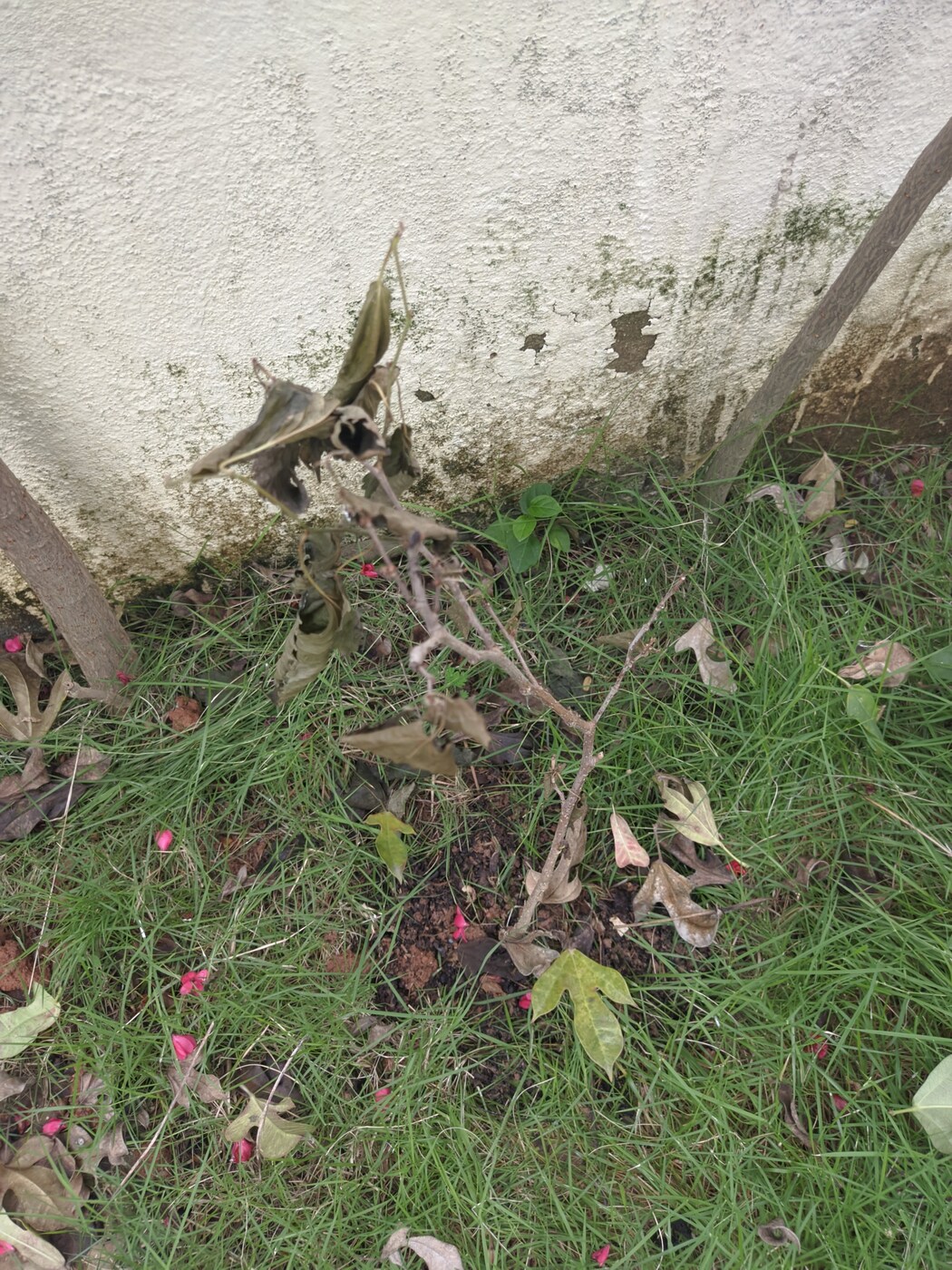






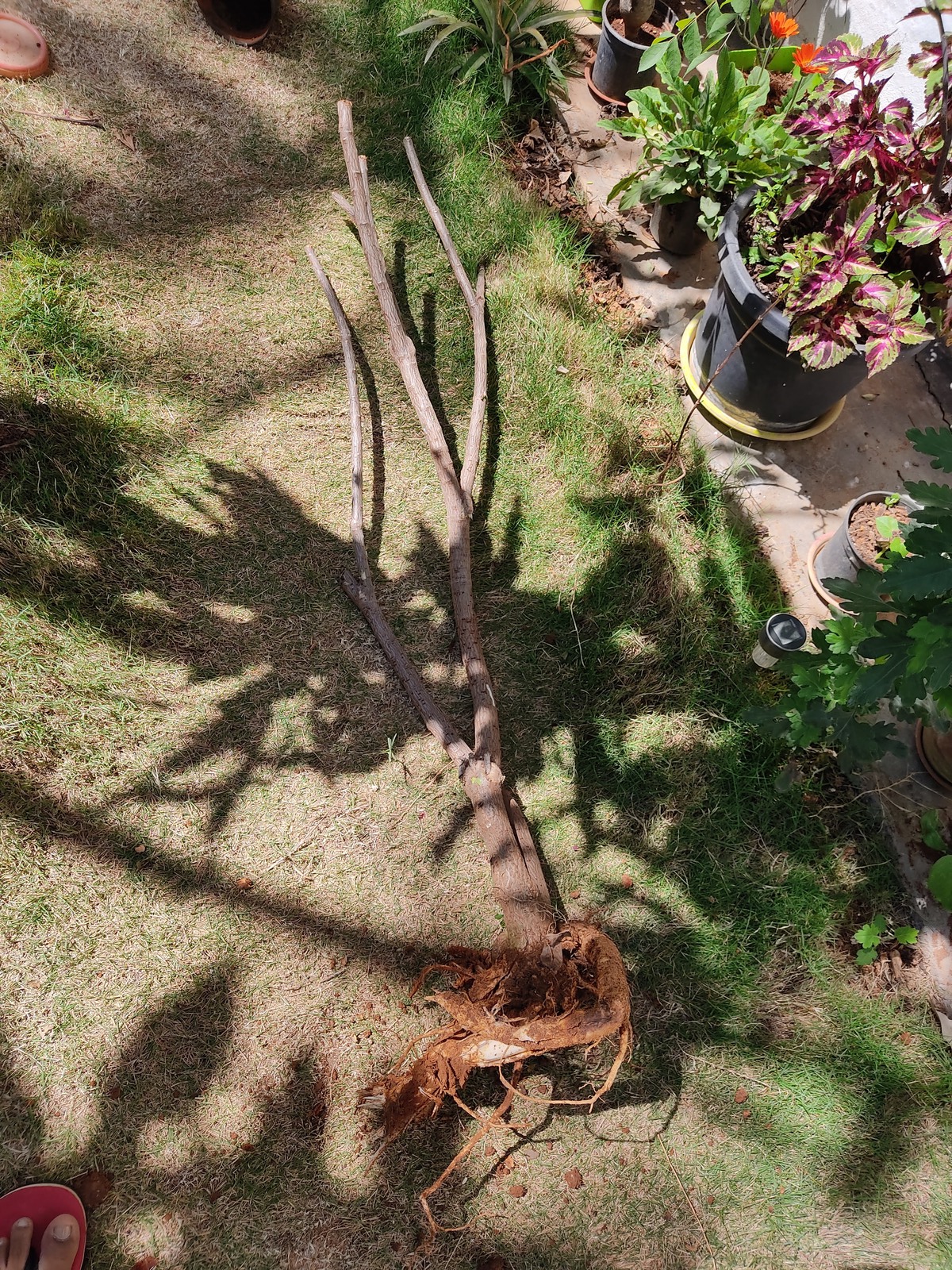














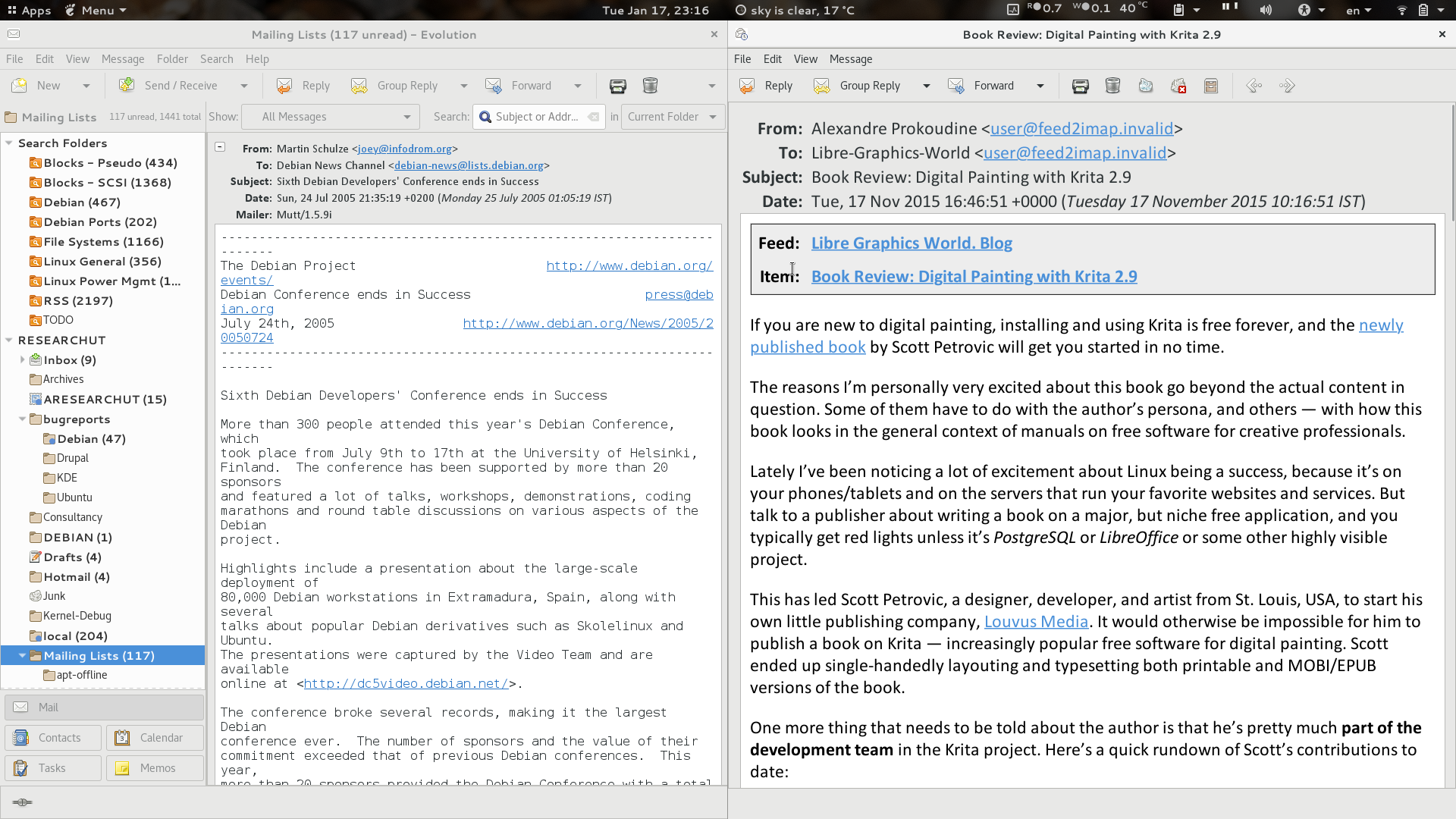







 I won't reveal precisely how many books I read in 2020, but it was definitely an improvement on
I won't reveal precisely how many books I read in 2020, but it was definitely an improvement on  On doing 540 no-source-change source-only uploads in two weeks
So I've been doing 540 no-source-change source-only uploads in the last two weeks
and am planning to do 3000 more in January 2021. We'll see how that goes
On doing 540 no-source-change source-only uploads in two weeks
So I've been doing 540 no-source-change source-only uploads in the last two weeks
and am planning to do 3000 more in January 2021. We'll see how that goes  Let me explain what I have been doing and why.
So,
Let me explain what I have been doing and why.
So, 
